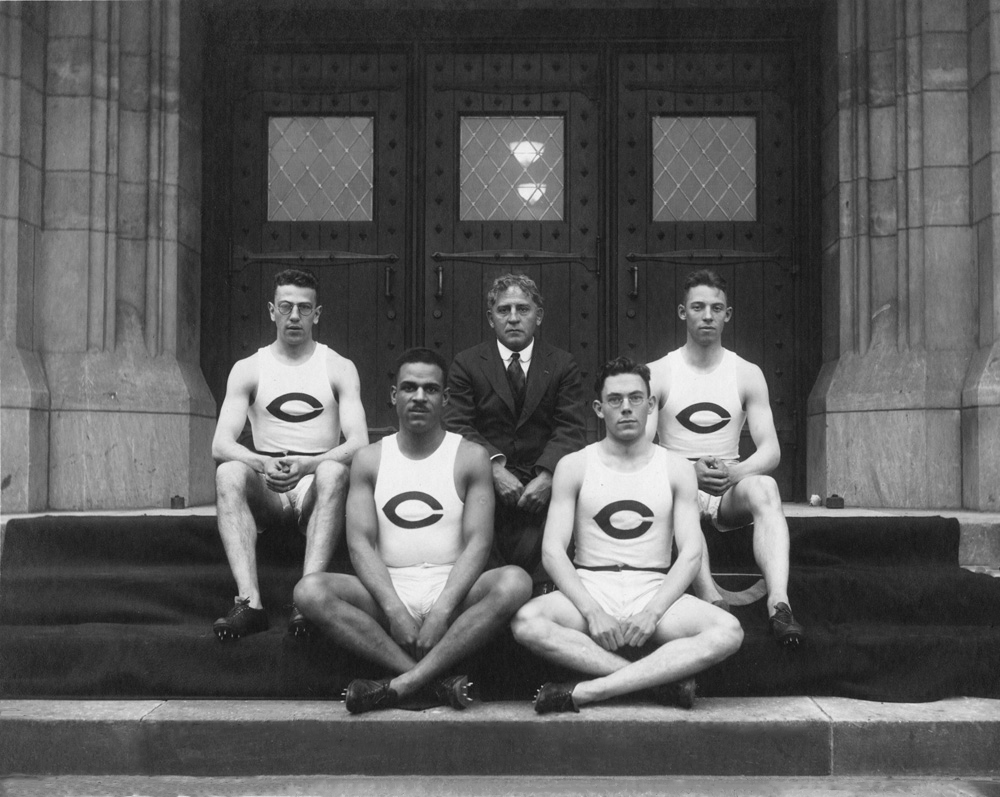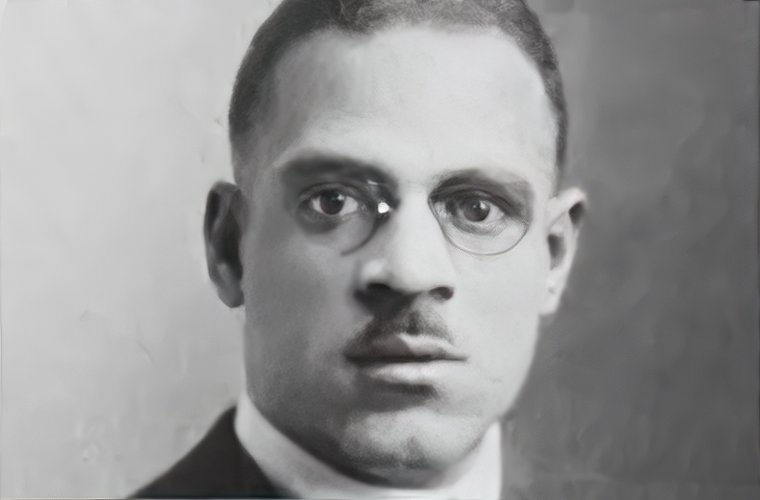Henry Binga Dismond, a star athlete, medical device inventor, pioneering physician, and poet, was born on December 27, 1891, in Richmond, Virginia to Dr. Samuel H. Dismond and Jessie Cornelia Binga. Henry attended Richmond public schools, Virginia Union University, and Howard University, where he graduated with a B.A. in 1912.
In 1911, at his first Smart Set Athletic Club track meet in Brooklyn, New York Dismond took the point trophy by winning the 220 yards and quarter-mile events. Invited by his cousin, banker Jesse Binga, he enrolled in the medical program at the University of Chicago. During freshman year, he broke a 19-year Central Amateur Athletic Union record with 48.3/5 seconds and was chosen for the U.S. Olympics team to compete in Berlin, Germany in 1916. Despite the cancellation of the Summer Olympics, Dismond received a gold medal for matching the American quarter mile record time of 47.2/5 seconds, set by national champion Ted Meredith. Later, after defeating Meredith, he became the Western intercollegiate champion and earned his varsity letter.
In 1917, a student of orthopedic medicine at Rush Medical College, Dismond enlisted with the 370th Infantry during World War I. His was one of three battalions fighting under French authority that were commanded by black officers. Near the war’s end, he received an honorable mention for courageous leadership under heavy gunfire and promotion to First Lieutenant.

In 1919, Desmond returned home to intern with Provident Hospital, and there he invented the Radex Steam Infuser, a respiratory treatment device. Dr. Dismond and his wife Geraldyne, whom he married in 1917, moved to New York City in 1924. There he developed electrotherapy, physiotherapy, and x-ray medical practice and by 1925 operated the Dismond Reconstruction Clinic. By 1930, he was a physician at Harlem Hospital and later established the Emergency Industrial Service, Harlem’s first workmen’s compensation clinic.
In 1941, the Workman’s Compensation Board of the New York County Medical Society designated Dr. Dismond a Physical Therapy Specialist. He later established the Physical Therapy Department at Harlem’s Sydenham Hospital, the first New York public hospital to serve African Americans. Dr. Dismond also organized the physician’s board at Harlem’s Abyssinian Baptist Church to administer health education programs, promoting community wellness.
A student of Haitian culture, Dismond founded the Society of the American Friends of Haiti to educate Americans about Haitian history, culture, and socio-political and economic issues. Following the Haitian Massacre, a 1937 political crisis, he organized the shipment of medical supplies to the country and later raised money for the Haitian Orphanage Fund. In March of 1938, he received the title “Chevalier of the National Order of Honor” from the Haitian government. In 1943, Dismond wrote a book of poetry entitled, We Who Would Die and Other Poems including Haitian Vignettes. The book included socio-political protest poetry, Haitian Essays, personal anecdotes, romantic prose, and other verse about the physician’s life.
Dismond was active in the National Urban League, NAACP, Alpha Phi Alpha Fraternity and the Council of Elks, Prince Hall Masons, and Knights of Pythias. Dr. Henry Binga Dismond died in Harlem, New York on November 21, 1956. He was 64 years old.

